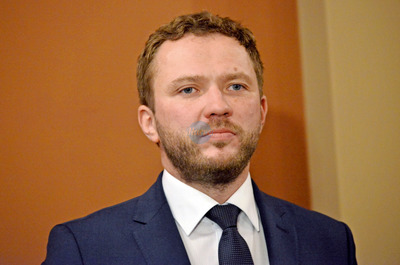Crisis in Estonia: Protecting Citizens' Assets in Russia Amid Legal Uncertainty
Estonia finds itself facing a daunting challenge: unable to protect the assets of its citizens in Russia, it is confronted with potential retaliatory measures from the Russian authorities. In a recent interview with the Russian-language channel ERR ETV+, Minister of Foreign Affairs Margus Tsahkna emphasized the vulnerable position of Estonian citizens and residents regarding the possible confiscation of their property in Russia. This statement followed the Riigikogu's decision to legalize the confiscation of assets belonging to Russian private individuals, frozen in Estonia, for the purpose of compensating damage inflicted on Ukraine.
Estonia finds itself facing a daunting challenge: unable to protect the assets of its citizens in Russia, it is confronted with potential retaliatory measures from the Russian authorities. In a recent interview with the Russian-language channel ERR ETV+, Minister of Foreign Affairs Margus Tsahkna emphasized the vulnerable position of Estonian citizens and residents regarding the possible confiscation of their property in Russia. This statement followed the Riigikogu's decision to legalize the confiscation of assets belonging to Russian private individuals, frozen in Estonia, for the purpose of compensating damage inflicted on Ukraine.
Legal vacuum and uncertainty Minister Tsahkna described Russia as a country where "anything can happen," highlighting the lack of legal guarantees for those whose property is located within its borders. From a legal standpoint, Estonia is unable to provide protection or support to its citizens caught in such circumstances. This places Estonian authorities in a particularly difficult position, as they cannot influence processes occurring beyond their jurisdiction.
Economic and personal consequences The economic ties between Estonia and Russia have already been minimized, but many Estonians still own property in Russia, including real estate in places like Ivangorod. Uncertainty persists: it is unknown whether the Russian authorities will target this property as retaliatory measures against Estonia. The minister reminded that Estonian entrepreneurs have long been warned about the risks of doing business in and with Russia, further underscoring the instability of the current situation.
International legal support On May 15, legislation passed by the Riigikogu provided a legal basis for using frozen assets of Russian individuals in Estonia to compensate Ukraine for damages. This decision is likely to strain international relations and may provoke further legal and diplomatic disputes.
According to Minister Tsahkna, Estonia finds itself in a position where it is obligated to defend its interests and those of its citizens, yet is limited in its ability to influence the situation in another country. This highlights the complexity and multi-layered nature of international relations amidst globalization and political instability.
